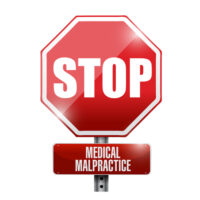Do I have a Malpractice Claim for Late Diagnosis of My Condition?

Patients necessarily put a great deal of trust in their doctors to identify and treat the injuries or illnesses they are suffering from. Without having good cause to seek a second opinion, many of us trust our doctors’ assessment of our condition. However, a doctor’s failure to diagnose a serious medical condition, such as a stroke, appendicitis, or cancer, can have serious and even fatal consequences. Below, learn more about lawsuits for late or missed medical diagnoses.
Patients who believe that they might have had a better outcome had their doctor earlier diagnosed their condition will need to prove three key elements in order to recover damages for a late or missed diagnosis:
-
There was a doctor/patient relationship: This is typically established by showing that the victim sought medical treatment from that doctor, whether during a single visit or on an ongoing basis.
-
The doctor negligently failed to diagnose the patient’s condition: The patient must prove that a doctor of reasonable competence and knowledge in the field would have been able to timely diagnose the patient’s condition. In other words, had the doctor not been negligent, they would have heard the same description of symptoms, or seen the same test results or x-rays, and accurately diagnosed the patient. If there were some subtle symptoms of a condition, but ones that even an attentive and knowledgeable doctor might have missed, then failing to diagnose the condition might not constitute negligence.
-
The doctor’s negligence caused the patient harm: Finally, the patient must prove that the delay in diagnosis caused the patient to suffer a critical delay in treatment, when an earlier identification of the condition would have led to a better result or prognosis. For example, a doctor may have failed to correctly identify a patient’s infection in a limb before it had spread to other parts of the patient’s body. As a result of the delay, the patient may have had to undergo an amputation, whereas an earlier diagnosis could have led to treatment of the infection without loss of a limb. However, if the failure to diagnose the condition did not cause any harm, or the harm was already done, then there may not be a claim for malpractice. For example, if you had a mole checked by one dermatologist who negligently failed to identify that it was cancerous, but saw a second dermatologist within a matter of days thereafter who diagnosed and removed the mole, then it is unlikely you suffered any additional harm due to the first doctor’s negligence.
If you believe you were the victim of medical malpractice in New York, ensure that you receive the compensation you deserve for the harm you suffered by contacting the knowledgeable and experienced Hudson Valley medical malpractice lawyers at Rusk, Wadlin, Heppner & Martuscello for a consultation on your claims, at 845-331-4100 in Kingston, and 845-236-4411 in Marlboro.

